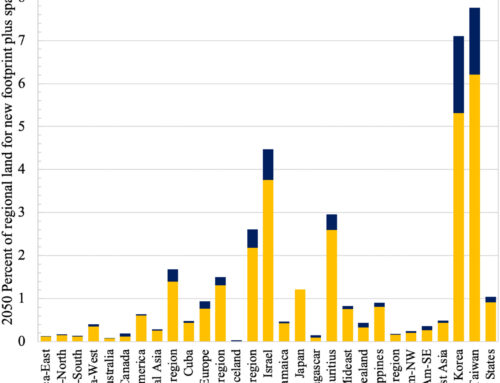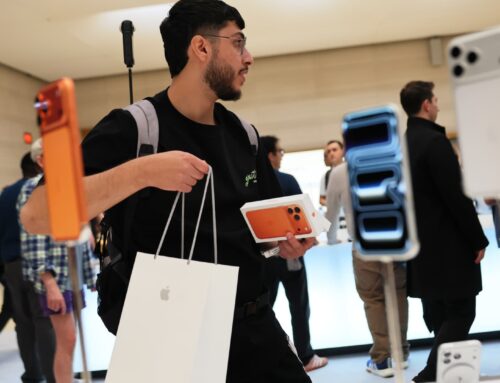Fish engineers: Cod, eel save environment by storing carbon in sea
April 28, 2025
New research reveals that many of the fish species we eat are vital to maintaining the seabed — and by extension, the climate.
Published: Apr 28, 2025 07:01 PM EST

Representative image of Atlantic cod.
New research reveals that many of the fish species we eat are vital to maintaining the seabed — and by extension, the climate.
Experts at the Convex Seascape Survey analyzed the role of fish in bioturbation, which is the stirring and reworking of sediments in the shallow seas around the UK and globally. The results also underscore the ecological importance of species like the Atlantic cod, Atlantic hagfish, and European eel, which were the region’s highest-ranked ‘ecosystem engineers’.
Altogether, the researchers identified 185 fish species contributing to bioturbation, 120 targeted by commercial fisheries.
“Ocean sediments are the world’s largest reservoir of organic carbon – so what happens on the seabed matters for our climate,” said University of Exeter PhD student Mara Fischer, who led the study.
“Bioturbation is very important for how the seabed takes up and stores organic carbon, so the process is vital to our understanding of how the ocean absorbs greenhouse gases to slow the rate of climate change.
“Bioturbation is also important for seabed and wider ocean ecosystems. We have a good understanding of how invertebrates contribute to global bioturbation – but until now, we have been missing half the story. Our study is the first to attempt to quantify the bioturbation impact of fish, and it shows they play a significant, widespread role.”
Co-author Callum Roberts said, “We also found that species with the highest bioturbation impacts are among the most vulnerable to threats such as commercial fishing.”
“Many of the largest and most powerful diggers and disturbers of seabed sediments, like giant skates, halibut and cod, have been so overfished they have all but vanished from our seas. These losses translate into big, but still uncertain, changes in the way seabed ecosystems work.”
The study analyzed records of all fish species living on the UK continental shelf. Researchers found that over half contribute to bioturbation through various behaviors, including foraging, burrowing, and nest building. To calculate each species’ bioturbation impact score, the team considered the different ways fish rework sediment, the size of the fish, and the frequency of these activities.
Among the key species identified was the European eel, which burrows into sediment and earned a bioturbation score of 100 out of 125. Critically endangered and primarily caught using traps and fyke nets, the European eel faces climate change, disease, habitat loss, pollution, and fishing threats.
Similarly, the Atlantic cod, a vertical excavator with a bioturbation score 100, is classified as vulnerable. Popularly consumed in dishes like fish and chips, cod populations have declined sharply in regions like the North Sea.
The Convex Seascape Survey, a collaboration between the Blue Marine Foundation, the University of Exeter, and Convex Group Limited, represents the most ambitious effort yet to deepen scientific understanding of the ocean’s role in the Earth’s carbon cycle.
“Anyone who has spent time underwater, whether snorkelling or diving, knows that fish are constantly digging up the seabed,” said author Julie Hawkins.
RECOMMENDED ARTICLES
“It’s hard to believe that such an obvious and important activity has been largely overlooked when it comes to understanding ocean carbon burial.”
The study has been published in Marine Environmental Research.
ABOUT THE EDITOR
Srishti Gupta Srishti studied English literature at the University of Delhi and has since then realized it’s not her cup of tea. She has been an editor in every space and content type imaginable, from children’s books to journal articles. She enjoys popular culture, reading contemporary fiction and nonfiction, crafts, and spending time with her cats. With a keen interest in science, Srishti is particularly drawn to beats covering medicine, sustainability, gene studies, and anything biology-related.
RELATED ARTICLES
JOBS
Loading opportunities…
Search
RECENT PRESS RELEASES
Binance Converts SAFU Fund to Bitcoin After Oct. 10 Backlash—Will it Restore Trust or Add
SWI Editorial Staff2026-01-30T02:28:56-08:00January 30, 2026|
Bitcoin ETFs see worst outflows since August, as BTC, ETH products lose $1 billion
SWI Editorial Staff2026-01-30T02:28:12-08:00January 30, 2026|
‘From the Margins to the Mainstream’: Experts Urge Action Addressing Environmental CVD Ris
SWI Editorial Staff2026-01-30T02:26:08-08:00January 30, 2026|
Evaluating A New Framework For European Equity Investing
SWI Editorial Staff2026-01-30T02:25:09-08:00January 30, 2026|
Industry Digest: Cycling Airbag Investments, Brand Acquisitions & More
SWI Editorial Staff2026-01-30T02:24:13-08:00January 30, 2026|
Warren Buffett Broke One of His Most Important Investing Rules, and It’s Cost Berkshire Ha
SWI Editorial Staff2026-01-30T02:23:15-08:00January 30, 2026|
Related Post




